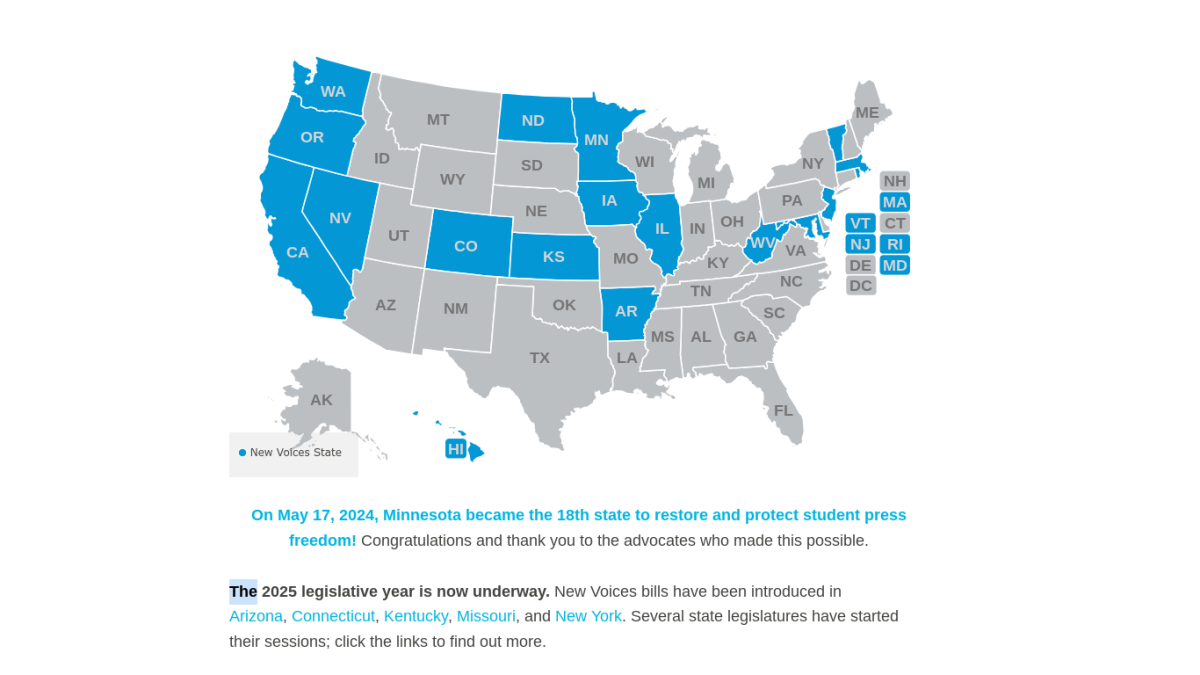The New Voices Act is a bill currently in the Missouri legislature that, if passed, will protect student journalist rights and will protect them from censorship. The law also prevents advisers from facing retaliation for refusal to enforce illegal censorship.
This bill has already been introduced in 18 states. The bill has already been passed in the state house and is awaiting a hearing in the Senate Education committee.
Student journalist and New Voices advocate Kellen Hoard explains why the New Voices Act is so important to student journalists.
“We have a moral and practical need. They have in sight and angles that usually aren’t being covered. If they aren’t able to, it causes a lot of issues,” Hoard said.
Even with more potential freedom, Hoard feels that there is still enough safeguards in place to keep stories from being potentially harmful. “There are safeguards in place in student publications already by advisors and editors,” Hoard said.
The New Voices Act Bill is a reversal to the 1988 Hazelwood vs. Kuhlmeier decision which states that student newspapers are not protected under the First Amendment. This law would once again ensure that student journalism is protected under the First Amendment, and protects them from unnecessary censorship. The bill has already been introduced in 18 states which includes Missouri.
Student journalism censorship isn’t a new concept in Missouri. Grayson Marlow from the Student Press Law Center details Missouri’s history of student journalism censorship.
“Missouri is the birthplace of the Hazelwood decision. Right now, all across the state, student journalists have fewer rights than their non-journalist peers,” Marlow said. “Without the clarification of the New Voices law, student journalists could be censored for virtually any reason.”
Most student publications already have processes in place where advisers and student editors oversee the process of choosing stories, which is already a generally effective safeguard against potentially harmful content.
“We often hear the concern that New Voices will allow student journalists to publish anything and, everything that they want in their student paper, but that is simply not the case. These laws establish a balance between student journalists’ free press rights and the maintenance of a safe and educational school environment,” Marlow said.
How could this bill get passed? With student advocacy.
“One of the biggest questions we get asked is, how do bills like these pass? The answer is always with some persistent student advocates and a little bit of luck and magic,” Marlow said.














